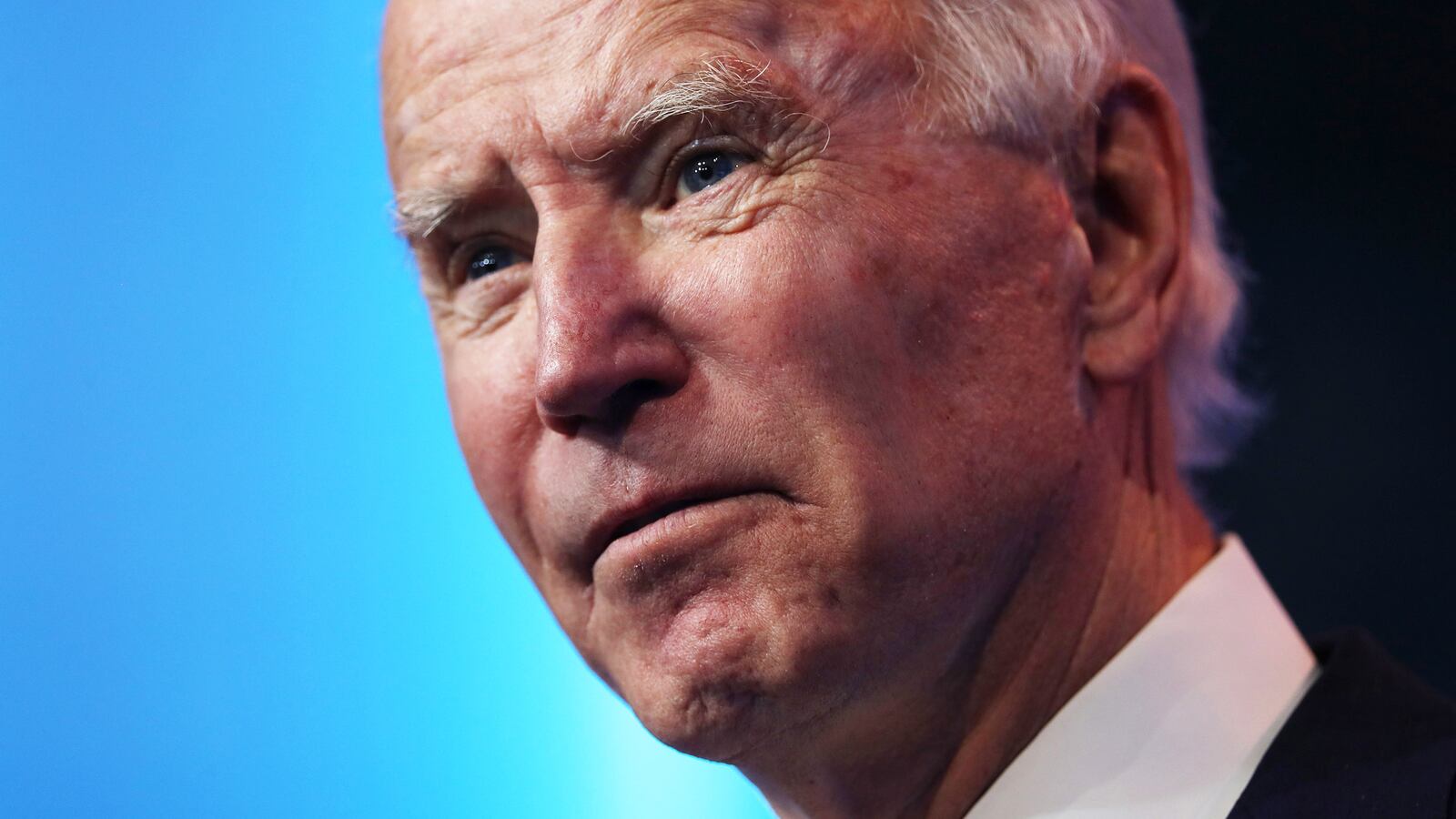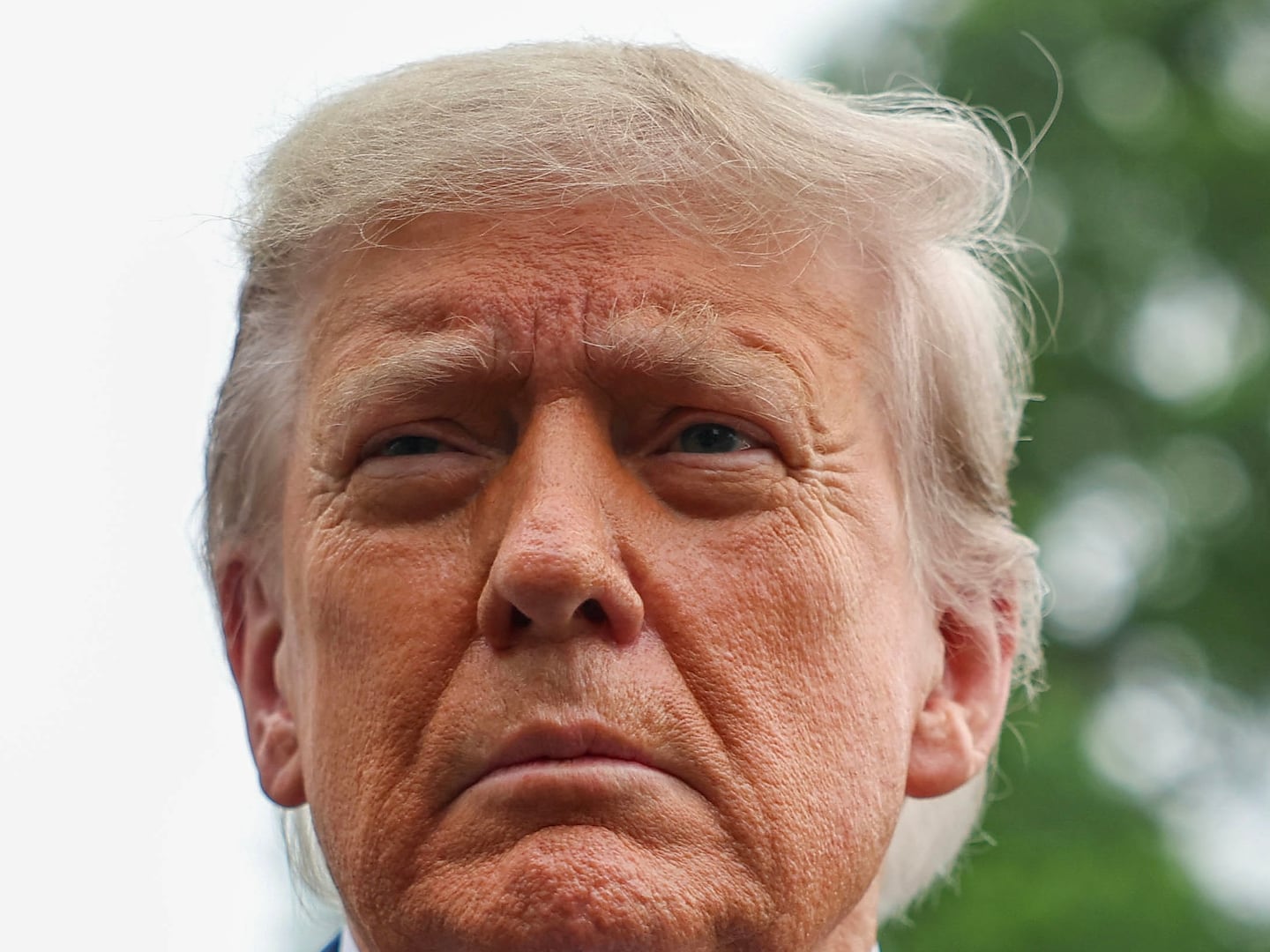The relationship between Joe Biden and Latinos is part rescue mission, part arranged marriage, and part shotgun wedding.
I’ve spoken to many Latinos who voted for Biden and now find themselves in a bit of a funk. They’re happy but sad. They know the president-elect isn’t in their corner, and they doubt he even knows where their corner is. They know that Biden grew up in a black-and-white world, and that his crayon box only has two colors in it.
He’s clumsy with African Americans. But at least he acknowledges their existence and their support. In his victory speech, Biden thanked African Americans for backing him and promised to return the favor.
He made no mention of Latinos, however. It’s hard to miss a population of 60 million people who are spread out in all 50 states and have an annual GDP of more than $2.3 trillion.
And for Democrats in particular, it really takes skill to ignore a constituency that has cast a majority of its votes for the Democratic nominee in the last 15 presidential elections. This year, Latinos made Texas competitive for Democrats and helped deliver Arizona to the Democratic column for only the second time in the last 70 years.
Still, I see why Latinos aren’t Biden’s favorite minority. Some of us like bad boys. According to exit polls, President Donald Trump got as much as 36 percent of the Latino vote. He did well not just with Cubans in South Florida but also Mexicans in the Southwest. In 2020, you need a PhD in psychology to decode the Latino vote for Trump. What’s Spanish for Stockholm Syndrome?
Then, on the other hand, we have Biden, a nice enough guy who—let’s face it—just isn’t into us. He doesn’t know the first thing about us, and he doesn’t seem at all curious to learn.
In fact, during the campaign, the Democrat told a Latino protester who was angry over the heavy-handed immigration enforcement of former President Barack Obama to just go vote for Trump.
Nice. Toss us back into the arms of our abuser, why don’t you? Then maybe we’ll learn our place and stop criticizing every little thing you’ve done, like co-signing, as vice president, Obama administration policies that deported more than 3 million people, separated scores of families, and put hundreds of refugee kids in cages—all before Trump ever got into politics.
Personally, I think Biden sees Latinos as just another newfangled contraption that was never around when he was growing up in Pennsylvania and Delaware, and he’s had to learn how to manage it. To him, we’re email, Zoom calls, and iPhones all wrapped up into one. Trouble is, with Latinos, there’s no twentysomething intern who can lend a hand when there is a glitch.
Besides, Latinos are not a new thing. The first African Americans arrived in chains in 1619. Santa Fe, New Mexico, was settled by conquistador Don Pedro de Peralta 10 years earlier—in 1609. The oldest city in the United States, St. Augustine, Florida, was founded by the Spanish in 1565.
Be that as it may, Latinos are caught between feeling grateful to Biden for saving them from the clutches of Trump and suspicious of what Obama’s third term has in store for them. Mostly, we’re just holding our breath and waiting for that one thing that we always seem to experience when Democrats are in the White House: disappointment.
Latino disappointment in Biden is likely to come in two phases over the next six months, which will take us beyond the first 100 days. First, when Biden fills out his Cabinet, we are not likely to see Latinos go beyond their unofficial “quota” of three seats on the 15-member body.
A Democratic president has never put a Latino in one of the top four Cabinet positions: attorney general, defense, state, or treasury. Unless there is some truth in the rumor that California Attorney General Xavier Becerra might have a shot at being tapped to run the Justice Department, we can expect that tradition to continue.
So far, Biden has nominated Alejandro Mayorkas, a Cuban American, to be secretary of homeland security. DHS is an important department, and Mayorkas—a former U.S. attorney who was director of U.S. Citizenship and Immigration Services under Obama—is first-rate. In fact, had he been born a white male, he might be on his way to becoming attorney general. Still, Biden’s first Latino pick is a good one.
And second, on immigration, an issue close to the hearts of many Latinos, Biden overpromised and will likely underdeliver. On the campaign trail, Biden pledged to issue, in the first 100 days, more than a dozen executive orders and policy changes to roll back Trump policies. The first thing he’s likely to do is reinstate DACA (Deferred Action for Childhood Arrivals), a program that Trump ended that allows young undocumented immigrants brought to the United States as children to work and avoid deportation.
Biden also vowed to halt construction of the U.S.-Mexico border wall, stop separating families, end prolonged detentions for migrants, restore asylum, and curb deportations. He even promised to send Congress a bill to give legal status to the estimated 11 million illegal immigrants in the United States—again, all in the first 100 days.
Don’t hold your breath, folks. Not only is the timetable unrealistic, but there is also the politics to consider. Obama wrecked his immigration policy by trying to be simultaneously tough and compassionate. That doesn’t work. Now Biden is likely to travel the same road. Obama was squeezed between Latinos who wanted him to keep his own 2008 campaign promise to make immigration reform a top priority of his administration, and white working-class union members and African Americans who already feel overrun by Latino immigrants and see the prospect of legalizing millions of them as economic suicide because it would only increase competition for jobs.
Biden will find himself between the same rock and hard place. Expect him to bring back DACA, and call it a day. Meanwhile, deportations will continue at roughly the same pace that they’re happening now, which is an improvement over Obama’s deportation juggernaut. And a mass granting of legal status—which the right wing derides as “amnesty—will never be discussed again.
Joe Biden and Latinos were thrown together by circumstance. The relationship is built entirely on convenience. There’s no bond, no connection, and no obligation. You’d be hard-pressed to find even a trace of mutual respect, admiration, or affection.
This is a straight-up marriage of convenience. It’s OK that Biden doesn’t know much about Latinos. But he has to be curious enough to want to learn. If he isn’t, and if he’s never going to be, he will find it difficult to put together a Cabinet and White House staff that can take this country into the future. For their part, Latinos need to be able to connect with Biden and be confident that he can relate to at least part of their experience, perhaps as working-class Americans. If they can’t bond, they may bolt.
When it comes to Latino outreach, Republicans can’t be stuck on stupid forever. They’re bound to figure out sooner or later how to avoid past mistakes and be more inclusive.
It is estimated that, by 2040, Latinos will account for 1 in 4 Americans. That demographic reality cannot be changed. The question is, are those future Latinos going to be Democrats or Republicans?
Through his actions, and how he treats Latinos over the next four years, Biden may have something to say about that. He should speak loud and clear.







